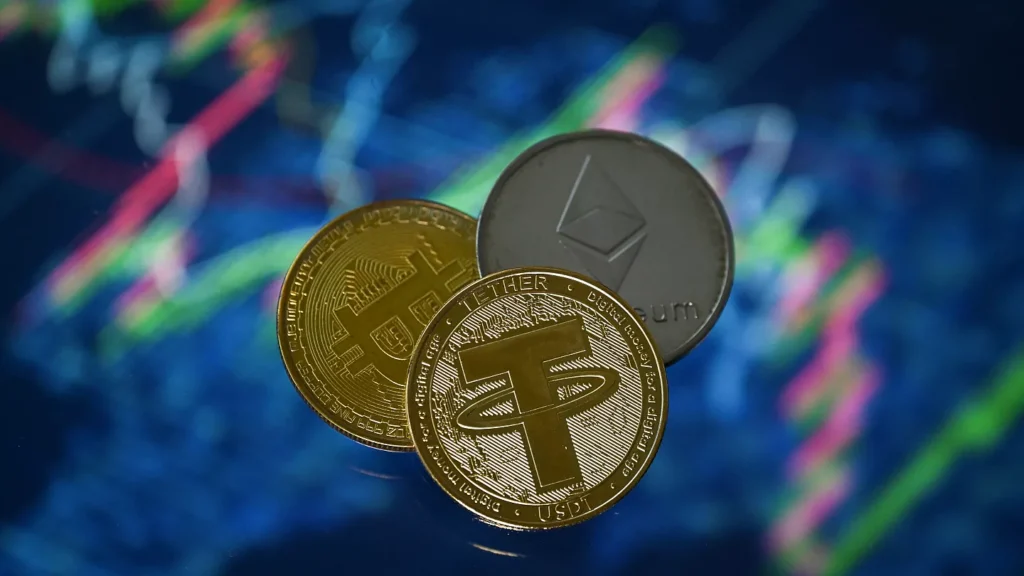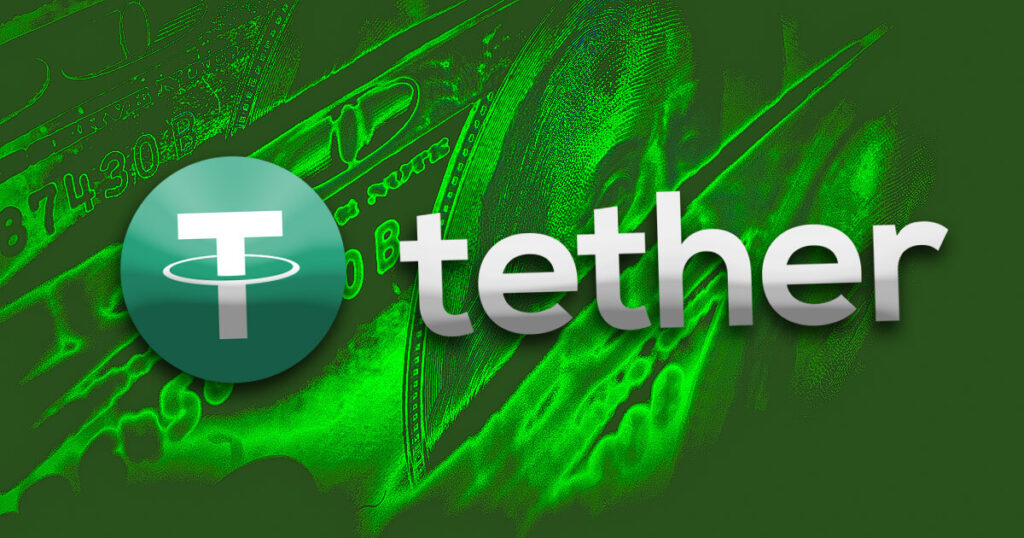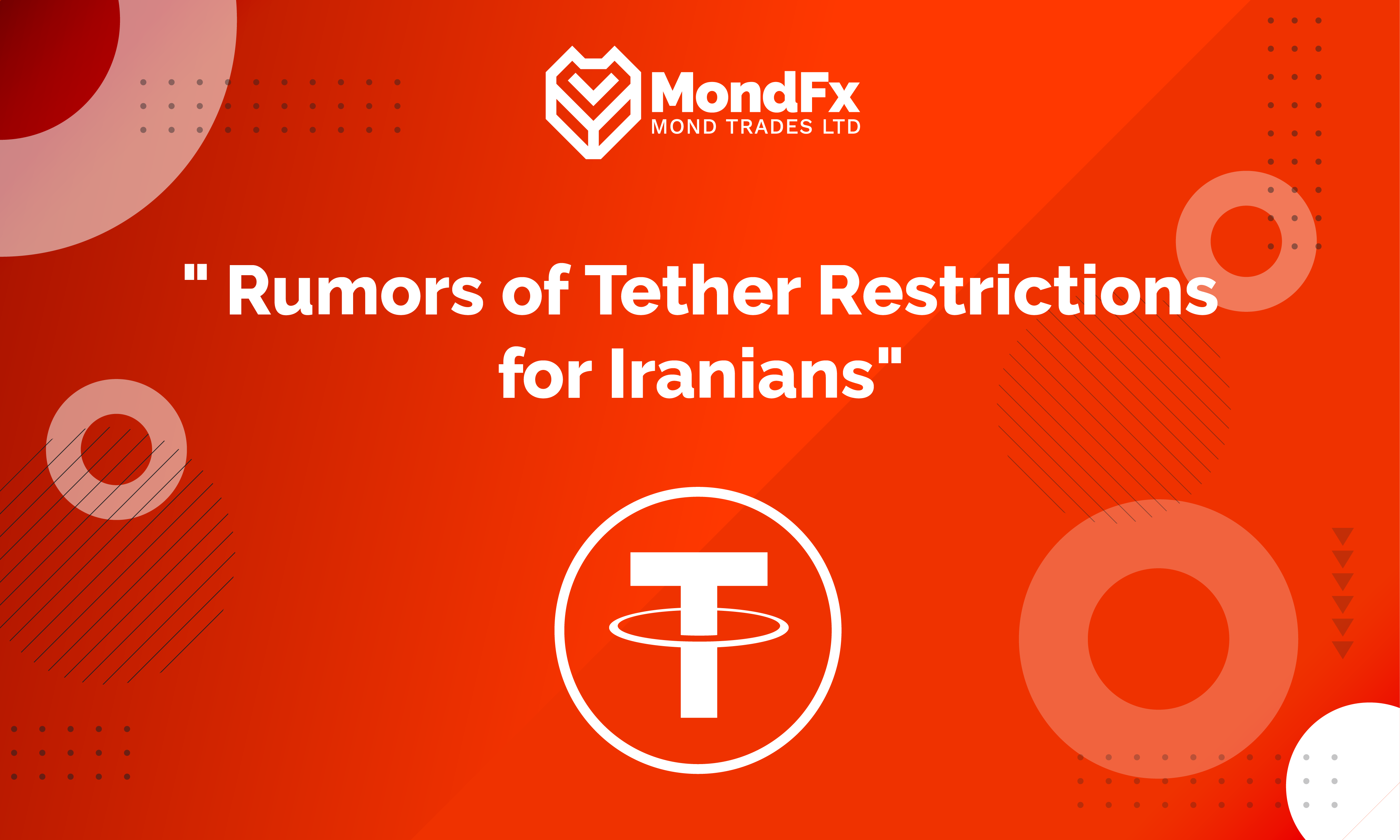Tether, the popular stablecoin in the world of cryptocurrencies, has recently become a focal point for Iranian users. Rumors about the possibility of this currency being blocked for Iranians have sparked a wave of concern and questions. Are these rumors true? What dangers threaten Iranian users, and how can they be avoided? This article closely examines the current status of Tether for Iranian users and offers practical strategies for risk management and security in using cryptocurrencies. By gaining a deeper understanding of this issue, users can make more informed decisions regarding their investments.
An Introduction to Tether and Its Importance in the Cryptocurrency Market
Tether (USDT) is a stablecoin designed to reduce price volatility in the cryptocurrency market. Each Tether unit is typically valued at one US dollar, making it a stable financial tool. Tether is issued by Tether Limited and developed on various blockchains, including Ethereum, Tron, and Bitcoin (through the Omni protocol). This stablecoin is backed by real assets such as US dollars, bonds, and other liquid assets, which enhances investor trust in it.
The Importance of Tether in the Global Cryptocurrency Market
Tether plays a crucial role in the cryptocurrency market. Due to the extreme price volatility in this market, investors seek assets that can maintain their value over time. Tether meets this need as a stable asset, allowing users to quickly transfer from volatile assets to a stable asset. Additionally, Tether acts as an intermediary in cryptocurrency exchanges, increasing market liquidity and enabling large transactions to be conducted at lower costs. These features have made Tether one of the most widely used cryptocurrencies in the world.
The Difference Between Tether and Decentralized Cryptocurrencies
One of the notable characteristics of Tether is its centralized nature, which distinguishes it from decentralized cryptocurrencies like Bitcoin and Ethereum. While Bitcoin and Ethereum operate in a decentralized manner without a central authority controlling them, Tether is managed and controlled by a private company. This fundamental difference means that Tether operates under specific laws and regulations and can be controlled by regulatory authorities. This feature enables Tether to have capabilities such as blocking or freezing assets, which is not possible in decentralized currencies.
How Tether’s Smart Contracts Work
Tether’s smart contracts are implemented on various blockchains and are designed to enable transactions to be executed automatically without the need for intermediaries. These contracts allow users to transfer Tether tokens among each other. One of the important features of these contracts is that Tether Limited can block transactions or freeze tokens if necessary. This capability has been added to comply with legal regulations and prevent illegal use of Tether, such as money laundering and terrorist financing. These features demonstrate the centralized nature of Tether and its fundamental difference from decentralized cryptocurrencies.
An Overview of Economic Sanctions Against Iran
Economic sanctions against Iran have been imposed to pressure the government to change its domestic and foreign policies. These sanctions, implemented by the United States, the European Union, and some other countries, include extensive restrictions in the areas of banking, oil and gas, trade, and investment. These limitations are designed to cut off Iran’s access to the international financial system and significantly reduce its ability to carry out international transactions.
The Impact of Sanctions on Iranian Users’ Access to International Platforms
Economic sanctions have had significant effects on Iranian users’ access to international platforms. Due to these sanctions, many international companies refrain from providing services to Iranian users to avoid legal repercussions. These restrictions also apply to financial and cryptocurrency platforms. Iranian users struggle to easily access services from international exchanges and digital wallets due to sanctions. Even if access is provided, they often face the risk of having their assets frozen. These limitations compel Iranian users to resort to unofficial methods, utilizing VPNs and other tools to circumvent sanctions, which introduces new security problems and risks.
Rumors and Concerns Regarding Tether Blockages for Iranians
Review of Recent News and Rumors
In recent months, numerous reports about the blocking of Tether (USDT) for Iranian users have emerged. These reports are largely influenced by the increased pressure of U.S. sanctions and efforts to prevent Iran from circumventing these sanctions. Some news sources claim that Tether has blocked Iranian users’ accounts to comply with sanction regulations. These reports have raised significant concerns among Iranian users since Tether is one of the most commonly used stablecoins in Iran, and many users rely on it to preserve the value of their assets against market volatility.
Analyzing the Validity of These Rumors
To analyze the validity of the rumors regarding the blocking of Tether for Iranians, several points should be considered. Firstly, Tether has officially stated that it is committed to complying with international laws and regulations, including economic sanctions. This means that Tether may, in some cases, be compelled to block accounts of users from sanctioned countries. Secondly, many reports published in this context are largely based on speculation and unofficial information, and their accuracy cannot be confirmed definitively.
However, there is evidence that some Iranian users’ accounts on various platforms have been blocked. These incidents may stem from Tether’s efforts to comply with sanction regulations. It should be noted that these cases may be exceptional and limited to specific users and not applied broadly.
In conclusion, severe economic sanctions against Iran have had widespread effects on Iranian users’ access to international platforms. These sanctions have caused many foreign companies to refuse services to Iranians, including cryptocurrency platforms. The rumors about the blocking of Tether for Iranian users have arisen from these conditions. Although some evidence suggests that accounts have been blocked, these cases have not been widely and definitively confirmed. Iranian users should pay special attention to using secure methods and adhering to security protocols to avoid these problems.

Tether’s Regulations and Policies Regarding Users from Sanctioned Countries
Examining Tether’s Commitment to Comply with International Laws and Regulations:
Tether, as an international financial entity, is committed to adhering to global laws and regulations. This commitment includes compliance with anti-money laundering (AML) and know-your-customer (KYC) laws. Tether has stated that to maintain transparency and credibility, it collaborates with regulatory authorities and implements strict policies to prevent financial abuses.
One of Tether’s most important commitments is to comply with international economic sanctions. The company is obliged to refrain from providing services to individuals and entities listed on the sanctions lists of the United Nations, the European Union, or the United States. This commitment has led Tether to implement restrictive policies for users from sanctioned countries.
Restrictions Imposed on Users from Sanctioned Countries:
Tether has imposed serious restrictions on users from sanctioned countries. These restrictions include a ban on using Tether’s official platform, the inability to purchase Tether directly from the official website, and limitations on conducting large transactions. Additionally, Tether reserves the right to block accounts suspected of violating sanctions.
However, the implementation of these restrictions is practically challenging. Since Tether operates on several different blockchains and is traded on multiple exchanges, complete control over all its transactions is difficult. This has allowed some users from sanctioned countries to still access Tether through various methods.
Is Tether Really Being Blocked for Iranians?
Analysis of the Probability of Tether Being Blocked for Iranian Users:
The probability of Tether being blocked for Iranian users is a serious concern, but the reality is more complex than being able to comment on it with certainty. On one hand, Tether, as an American company, is required to comply with U.S. sanctions against Iran. This may lead to attempts to identify and block accounts belonging to Iranian users.
On the other hand, the decentralized nature of blockchain and the widespread use of Tether around the world makes it difficult to identify and block all accounts associated with Iran. Many Iranian users utilize various methods such as VPNs, decentralized exchanges, and personal wallets to bypass restrictions.
However, the risk of being blocked is greater for large transactions or accounts directly linked to IP addresses in Iran. Additionally, increased regulatory pressure on Tether could result in further restrictions in the future.
Documented Instances of Tether Being Blocked in the Past:
Although widespread and systematic reports of Tether being blocked for Iranian users have not been reported, there have been scattered cases of account or transaction blocks. For example, in 2022, reports surfaced about the blocking of certain wallet addresses linked to Iran. Also, instances of delays or non-approval of transactions suspected to be related to Iran have been reported.
One of the most notable instances of Tether being blocked relates to the KuCoin exchange hack in 2020. In this incident, Tether blocked over $33 million worth of stolen tokens. Although this case was not directly related to Iran, it demonstrated Tether’s ability and willingness to block significant amounts of tokens.
Overall, while the risk of Tether being blocked exists for Iranian users, this risk is not uniform for all users. Users making large transactions or not using secure methods to conceal their identity are at greater risk. Nonetheless, many Iranian users continue to use Tether cautiously and by employing various methods.

Preventive Measures and Risk Management for Iranian Users:
In the current situation where there is a possibility of restrictions on Tether usage for Iranian users, adopting smart strategies for risk management is essential. Below are some of the key strategies for Iranian users:
- Using Decentralized Wallets:
One of the most effective methods to reduce risk is using decentralized wallets (DeFi). These wallets allow users to manage their assets without the need for identification and while maintaining privacy. Wallets like MetaMask or Trust Wallet are suitable options. However, users must be cautious about the security of their private keys, as losing them means the assets cannot be recovered.
- Diversifying Digital Assets:
Sole dependency on Tether can carry significant risks. Iranian users can mitigate this risk by diversifying their asset portfolios. Using other stablecoins like USDC, DAI, or BUSD, as well as decentralized cryptocurrencies like Bitcoin and Ethereum, can be a good strategy. This approach not only reduces the risks associated with Tether but also allows users to take advantage of various market opportunities.
- Using Decentralized Exchanges (DEX):
Decentralized exchanges like Uniswap or PancakeSwap allow the trading of cryptocurrencies without the need for identification. These platforms minimize the risk of account blocking. However, users should pay attention to transaction fees (gas fees) on these platforms.
- Smart Use of VPNs:
Using a VPN to hide geographic location is essential, but it must be done with caution. Using free VPNs or frequently changing locations can appear suspicious. It is better to use a reliable paid VPN and maintain a consistent location.
- Managing Transaction Volumes:
Conducting large transactions can attract the attention of regulatory systems. Splitting large transactions into several smaller ones and spreading them over time can reduce risk. Additionally, avoiding predictable transaction patterns can help maintain security.
- Using Cross-Chain Bridges:
Cross-chain bridges facilitate the transfer of assets between different blockchains. These tools can be used to convert Tether to other currencies or transfer it between networks, making it harder to trace transactions.
- Continuous Education and Updates:
The cryptocurrency market is highly dynamic and always changing. Iranian users should consistently keep themselves updated with the latest news, regulations, and technologies. This awareness can help in making better decisions and managing risks more effectively.
- Utilizing Local and Native Services:
Whenever possible, using local platforms and services that are familiar with the conditions of Iranian users can be a suitable solution. These platforms often have specific strategies to bypass restrictions.
- Cybersecurity Awareness:
Protecting personal information and digital security is crucial. Using strong passwords, enabling two-factor authentication, and avoiding sharing sensitive information online can mitigate security risks.
- Planning for Various Scenarios:
Users should plan for different situations, including the possibility of sudden asset blocking. Having an exit strategy and setting clear stop-loss limits can be helpful in critical situations.
Ultimately, it should be noted that no strategy is 100% secure, and there is always a degree of risk. Users should assess their specific conditions and carefully evaluate risks to choose the best strategy. Additionally, adhering to ethical and legal principles in employing these strategies is essential.

Using VPNs to Access Cryptocurrency Platforms:
Using a VPN (Virtual Private Network) is a popular method for accessing cryptocurrency platforms that allows Iranian users to connect to these platforms anonymously via an external IP address. VPNs can encrypt internet traffic and prevent online services from identifying the user’s geographic location. This feature helps Iranian users bypass sanctions and access services that are usually not available to them.
Problems and Risks of Using Free VPNs:
Despite the benefits of using a VPN, utilizing free VPNs can pose serious problems and risks. One of the biggest issues is that many free VPNs lack sufficient security and may steal or sell user information. Additionally, free VPNs typically have lower connection speeds and may not perform well due to high traffic. Other risks include the possibility of losing VPN connection during a transaction, which can lead to the user’s account being blocked on the platform being used.
For Iranian users facing sanctions, risk management and prevention of potential problems in using cryptocurrencies are very important. Using decentralized cryptocurrencies like Bitcoin and Ethereum can reduce the risks of asset blocking. Also, choosing secure and reputable exchanges and wallets is crucial. Utilizing VPNs also helps users access international platforms, but they must be cautious when using free VPNs and pay special attention to the security of their connections. By following these guidelines, Iranian users can largely avoid the problems and risks associated with sanctions and international restrictions.
Recommendations and Practical Guidelines for Iranian Users:
For Iranian users concerned about potential restrictions in using Tether, there are several practical strategies. The first and most important recommendation is to diversify their digital asset portfolio. Sole reliance on Tether can carry high risks. Using other stablecoins like DAI, which have decentralized properties, or investing in major cryptocurrencies like Bitcoin and Ethereum can be a suitable strategy.
It is also advisable to use decentralized wallets (DeFi) instead of keeping assets in centralized exchanges. This approach gives users complete control over their assets and reduces the risk of account blocking. However, it should be noted that managing personal wallets entails greater responsibility for the user and requires higher knowledge and attention.
Another effective strategy is to use layer-two protocols like the Lightning Network for Bitcoin or Ethereum’s scalability solutions. These protocols not only increase speed and reduce transaction fees but also provide enhanced security and privacy.
Staying informed about new laws and being up-to-date on developments in the cryptocurrency market is also very important. Users should follow reputable news sources and respond promptly if new restrictions are imposed.
Finally, using reputable local exchanges that have solutions for bypassing restrictions can be a safer option for Iranian users. These exchanges usually have measures in place to ensure the security and privacy of Iranian users.
In general, a combination of vigilance, technical knowledge, and adherence to security principles can minimize the risks associated with using cryptocurrencies for Iranian users.
Conclusion:
Although there are rumors and concerns about Tether being blocked for Iranian users, the reality is more complex than being able to assert certainty on the matter. Tether, as an American company, is required to comply with sanctions, but the decentralized nature of blockchain and the widespread use of Tether make it difficult to identify and block all accounts linked to Iran. In this situation, Iranian users can minimize the risks associated with using cryptocurrencies by adopting smart strategies such as diversifying digital assets, using decentralized wallets, utilizing reputable VPNs, and adhering to security principles. Continuous awareness of market developments and new regulations will also play a crucial role in managing these risks.



